$(function() {
$('inputfield').on('keypress', function(e){
if(e.keyCode == '13'){
// enter pressed
e.preventDefault();
$('.search-button').trigger('click');
}
});
});

If brands want a lesson in how to create loyal, frequent customers, then they might want to look to the gaming industry, which boasts some of the dedicated, high-spending customer bases in the entire economy, according to a new analysis by Attain.
The vast majority of gambling now occurs online, with three-quarters of gambling transactions over the past 12 months occurring online, Attain data shows. The large size and intense loyalty of this customer base is driven by the boom in sports betting, with sports betting platforms engaged in an intense competition for market share.
The average customer on FanDuel, a popular sports betting app, made 90 bets and spent more than $3,000 in the past 12 months, Attain’s data finds. Three-quarters of those customers were repeat customers.
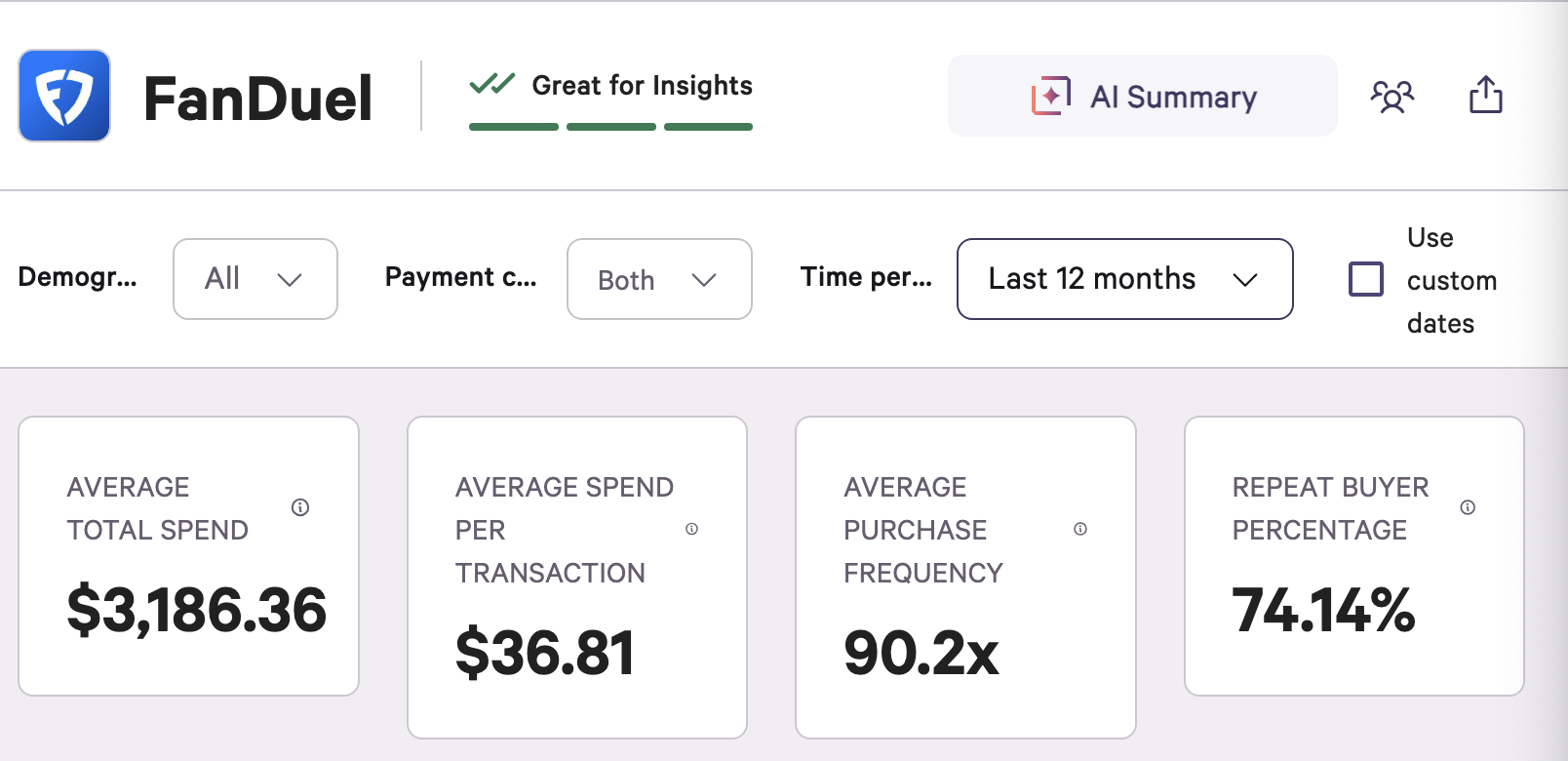
And that’s just on that platform. Considering how frequently the average sports bettor switches between platforms, the yearly spending potential for a sports betting customer is even higher.
Online gamblers have a high propensity for switching between platforms, presumably to take advantage of promotions and differences in betting lines and odds. Of the customers who switched to FanDuel in the past 12 months, half came from either DraftKings or BetMGM. The rest came from bet365, Prize Picks and other casino-operated sportsbooks.
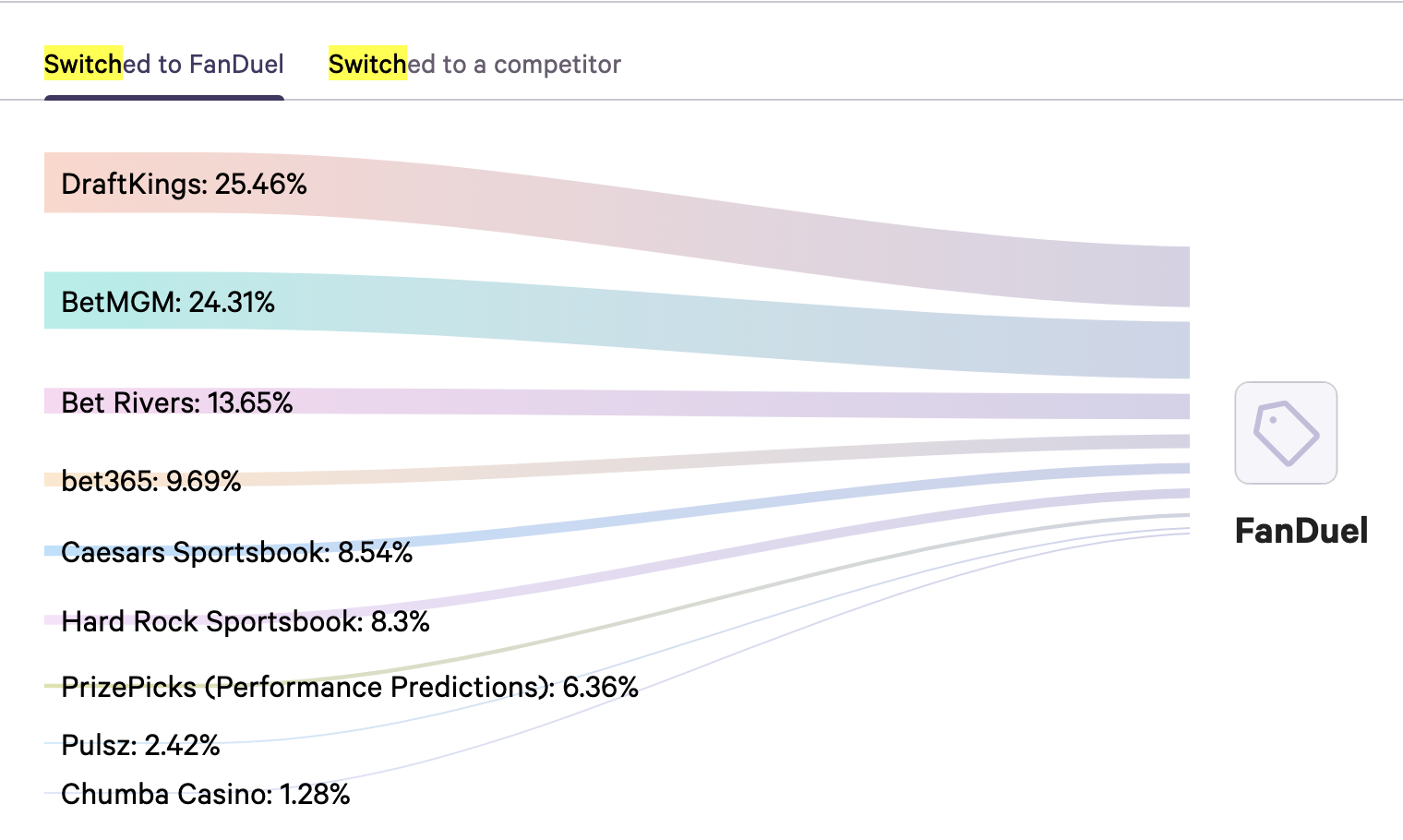
And yet former FanDuel customers switched to those same competing platforms in similar numbers. Of the FanDuel customers who switched to a competitor in the past year, 25 percent went to DraftKings, 21 percent went to bet365 and 19 percent went to BetMGM.
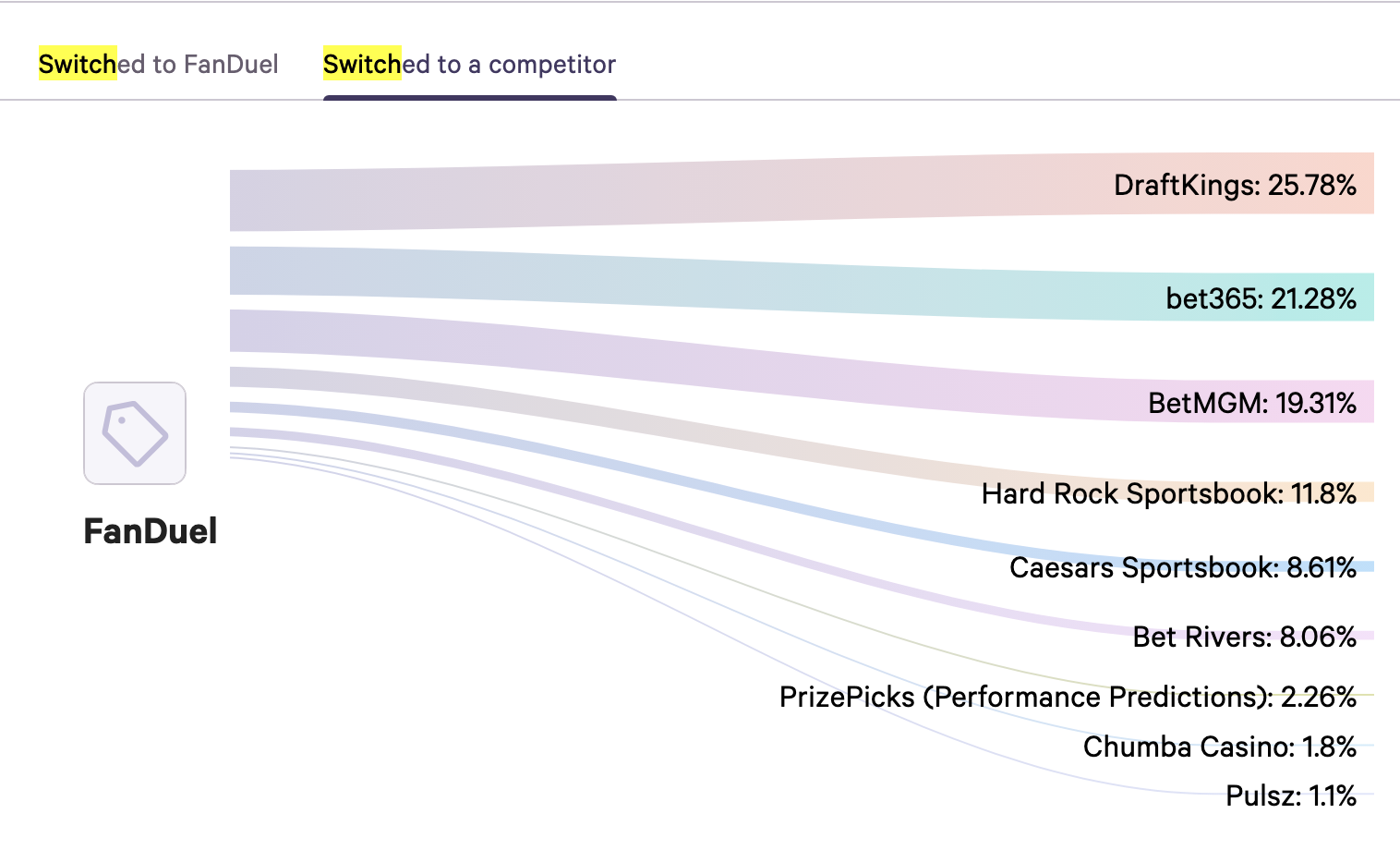
A direct comparison between FanDuel and its most direct competitor, DraftKings, shows that more than a quarter of the combined customer bases use both platforms. FanDuel slightly edges out DraftKings in terms of customer loyalty, with 41 percent of customers using FanDuel exclusively to 31 percent for DraftKings.
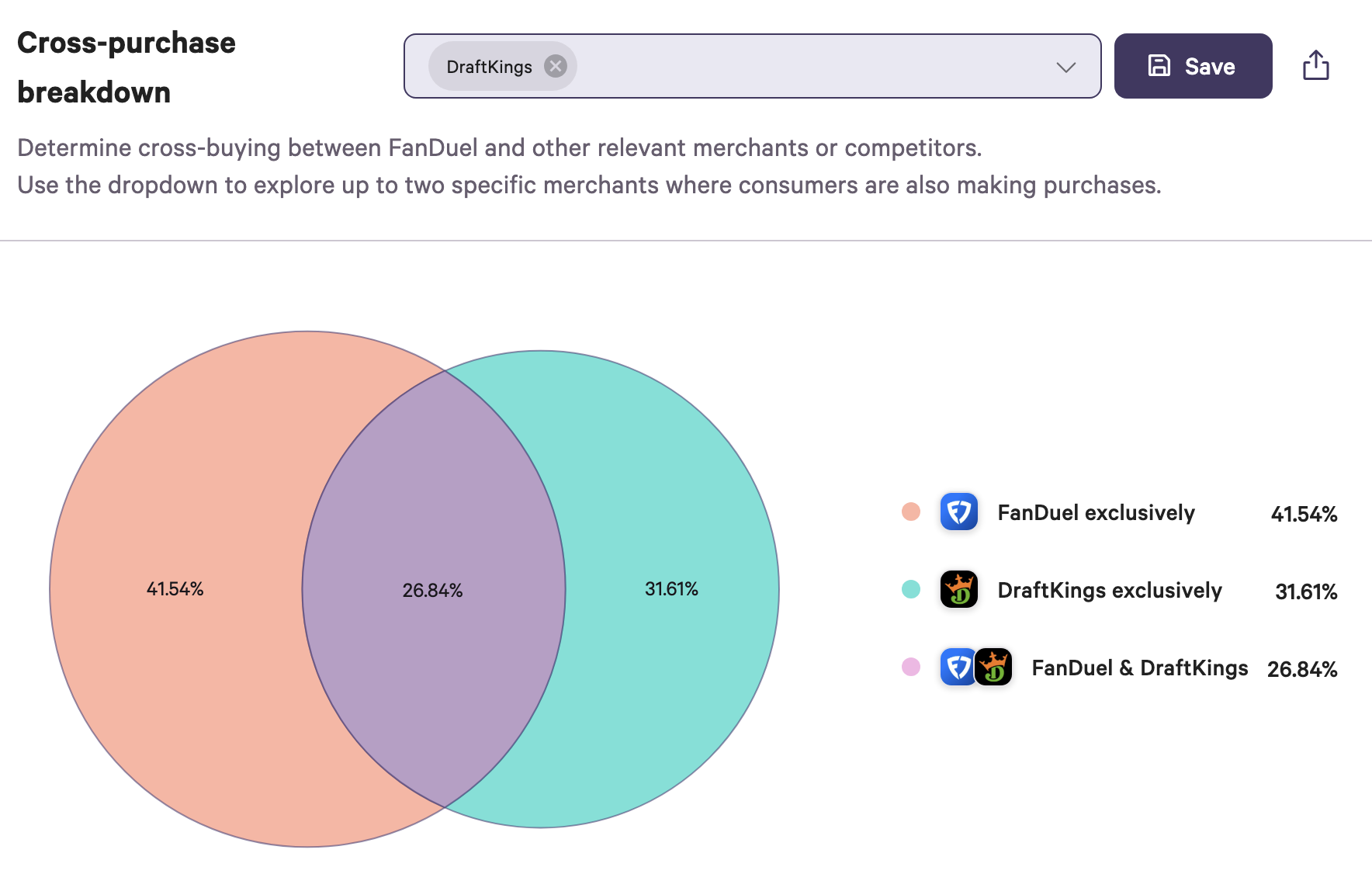
The data suggest that while sports betting customers are prone to switching, they do eventually land on a single platform, presumably to keep all their bets in one place.
Establishing brand loyalty with sports bettors is a huge opportunity for brands, as a high-level analysis of the casinos and gambling industry shows that loyal customers spend significantly more than casual bettors.
Over the past 12 months, the average gambler (both online and in-person) has spent $40 per transaction and laid down just shy of 100 bets — good for almost $4,000 in annual spending. The vast majority (77.9 percent) of those bets were made online.
Spending in the category is top-heavy, with the most loyal gamblers spending huge sums. The majority (56 percent) of online gamblers are casual bettors, laying just 15 bets a year for a total spend of $508.51. But the most loyal 21 percent of gamblers, however, laid 310 bets in the past year, nearly a bet a day, and spent just under $13,000.
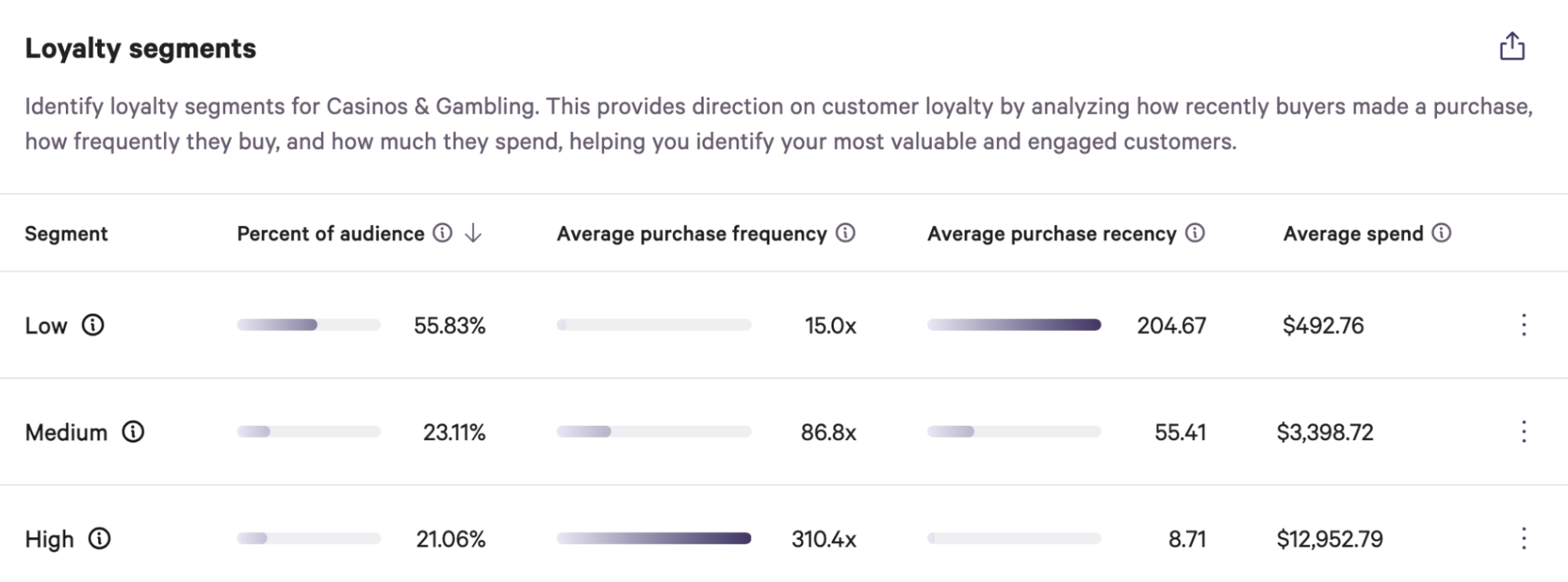
The online gambling boom is largely attributed to the 2018 Supreme Court decision to overturn the Professional and Amateur Sports Protection Act of 1992, thereby lifting the federal ban on sports betting and allowing states to implement their own sports betting laws. In just a few short years, numerous states have legalized online sports betting, creating an industry that is expected to exceed $150 billion by 2030.
The sports-online gambling connection is strong, Attain’s data shows. A third of gamblers describe themselves as “die-hard” sports fans, and another 22.7 percent describe themselves as “avid” fans. More than 40 percent of gamblers watch the NFL, the largest professional sports league in the country. A quarter watch the NBA, two-fifths watch Major League Baseball and 16 percent watch college football. Gambling spending spiked in March 2025, hitting its 12-month high for both average spend per transaction and average total spend. Not coincidentally, that is the same month as the March Madness college basketball tournament, the largest gambling event of the year.
Interestingly, gambling spending remained high throughout the rest of the spring and through the summer, despite the NFL being in the offseason, suggesting that the category isn’t entirely tied to sports viewing. Indeed, there is a small but significant contingent of gamblers (26 percent) don’t watch any of the major sports leagues, and 17 percent report watching no sports at all, indicating that non-sports betting games — such as blackjack and roulette, both online and in-person — are also popular on online gambling platforms.
The high lifetime value of online gambling customers has elicited tough competition between online gambling platforms, with myriad new entrants in the industry and strong attempts to conquest each other’s customers.
ESPN launched its ESPN Bet app in November 2023 to get in on the sports betting action, and, despite being a leader in sports broadcasting, has had trouble establishing brand loyalty. Only 60 percent of its customers over the past 12 months are repeat buyers, 14 points lower than FanDuel. ESPN Bet’s average total spend per customer, $1,669.30, is also lower.
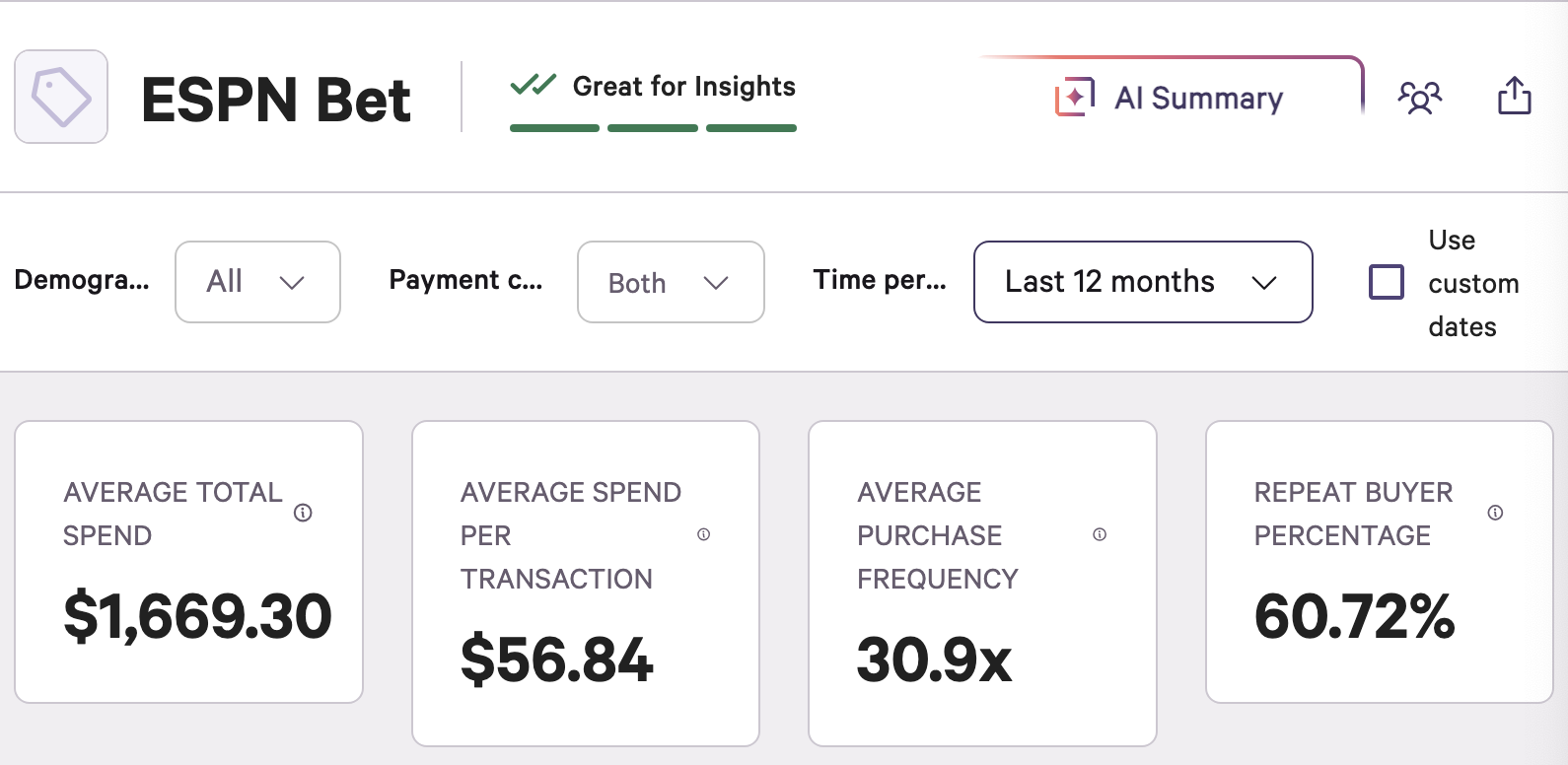
If ESPN Bet wants to gain market share, it will have to wrest some customers away from FanDuel, which commands one-third of the online gambling market, and DraftKings, which has just less than a quarter (23 percent) of the market.
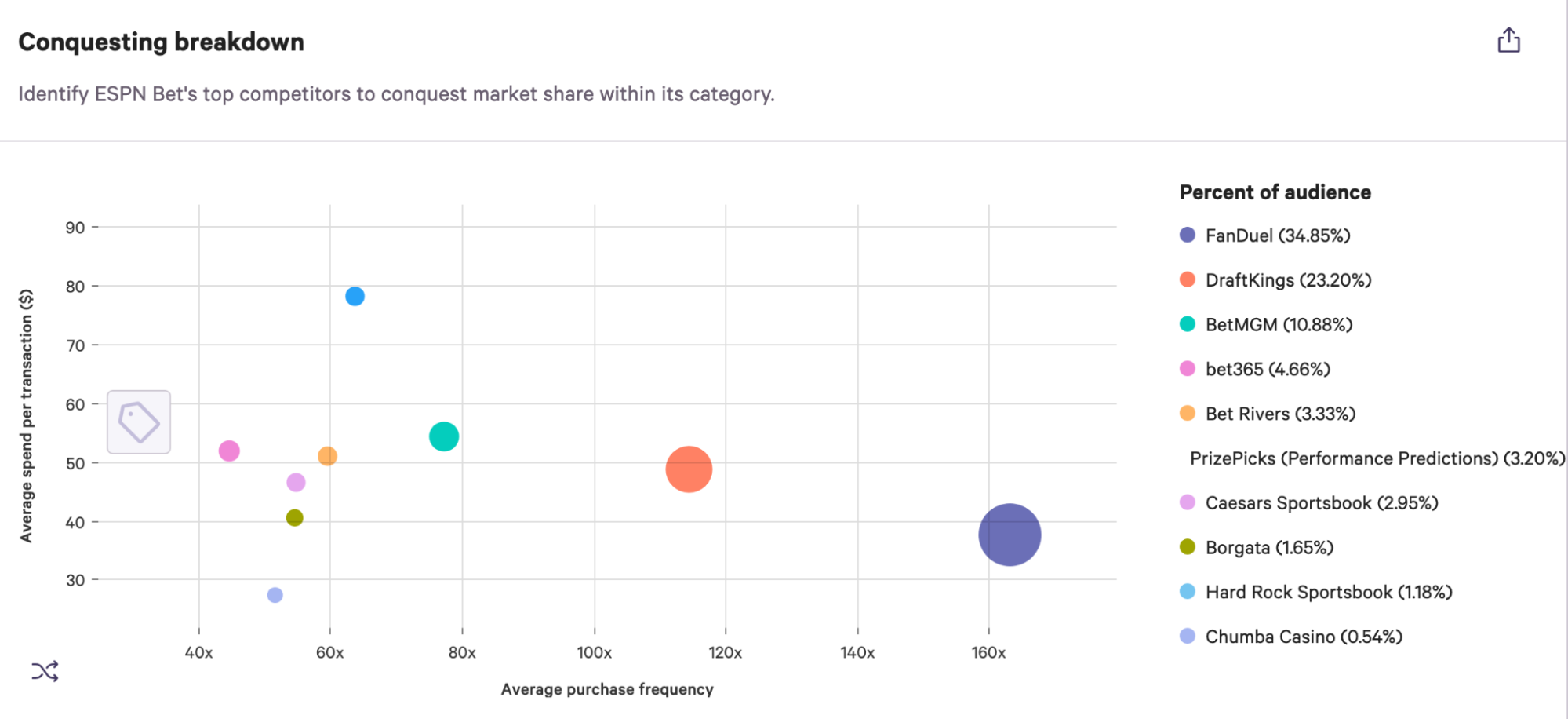
A comparison of all three platforms shows that, once again, FanDuel is the leader in terms of brand loyalty, with 37 percent of that combined customer base exclusively betting with FanDuel. More than a quarter are DraftKings devotees, and only 3 percent use only ESPN Bet.

Given how much sports gamblers are willing to spend, it’s no surprise online sports betting platforms are aggressively going after each other’s customers. And whichever platform is successful in establishing brand loyalty is going to have a significant base of customers with high lifetime value.
Interested in getting a demo of Attain's Premium Insights tool? Request a demo here.